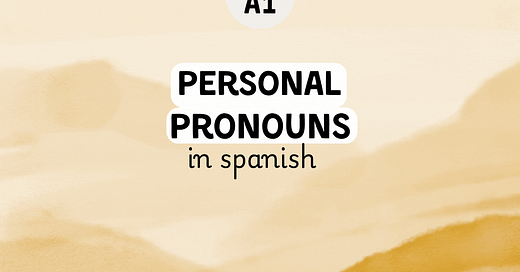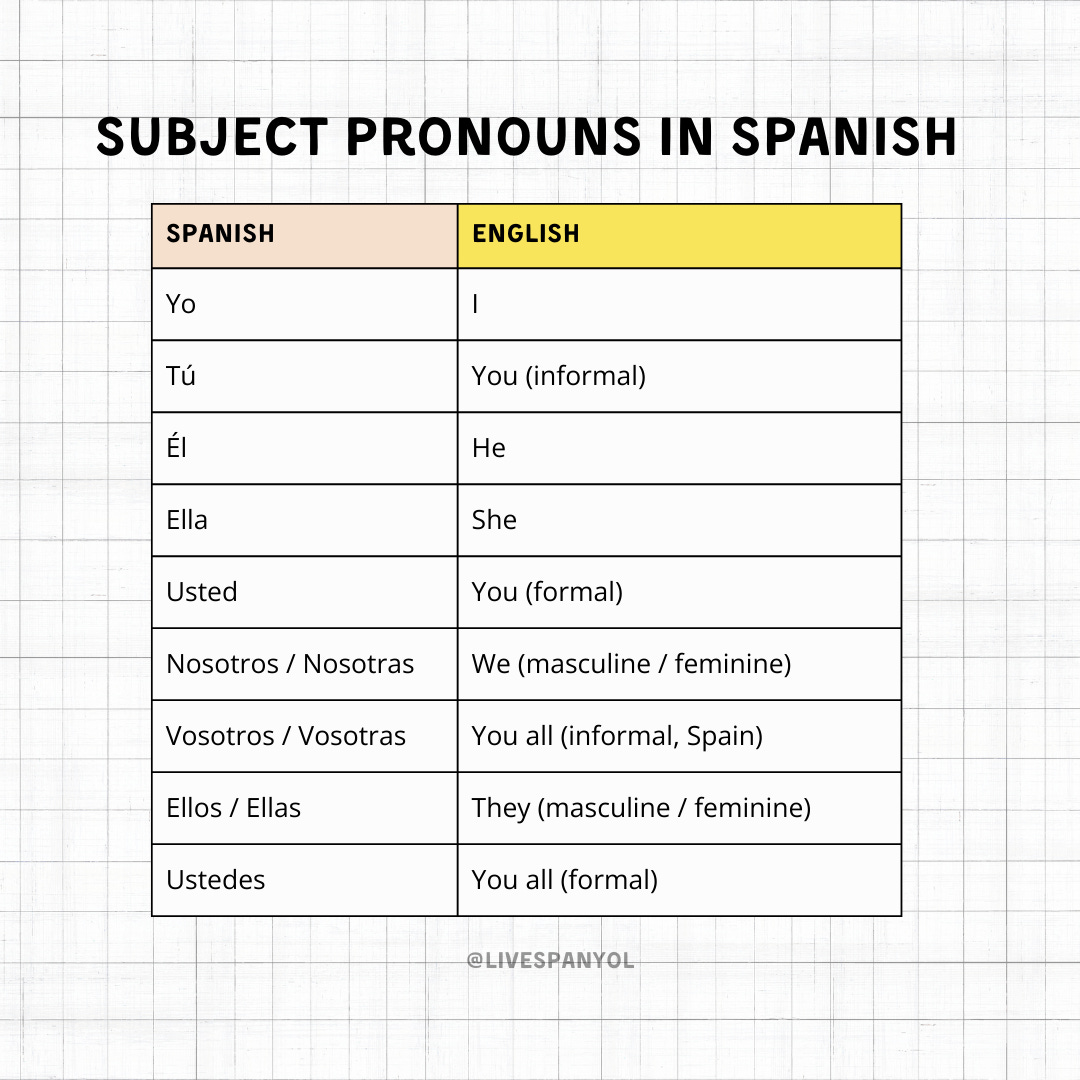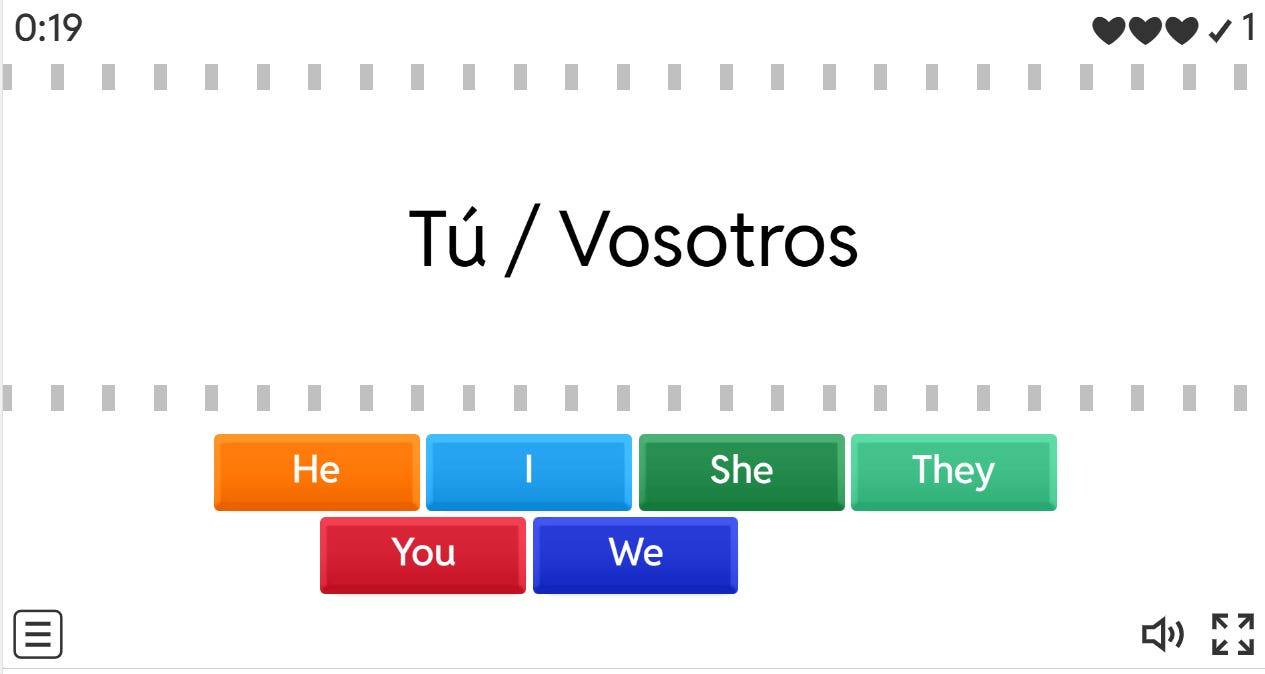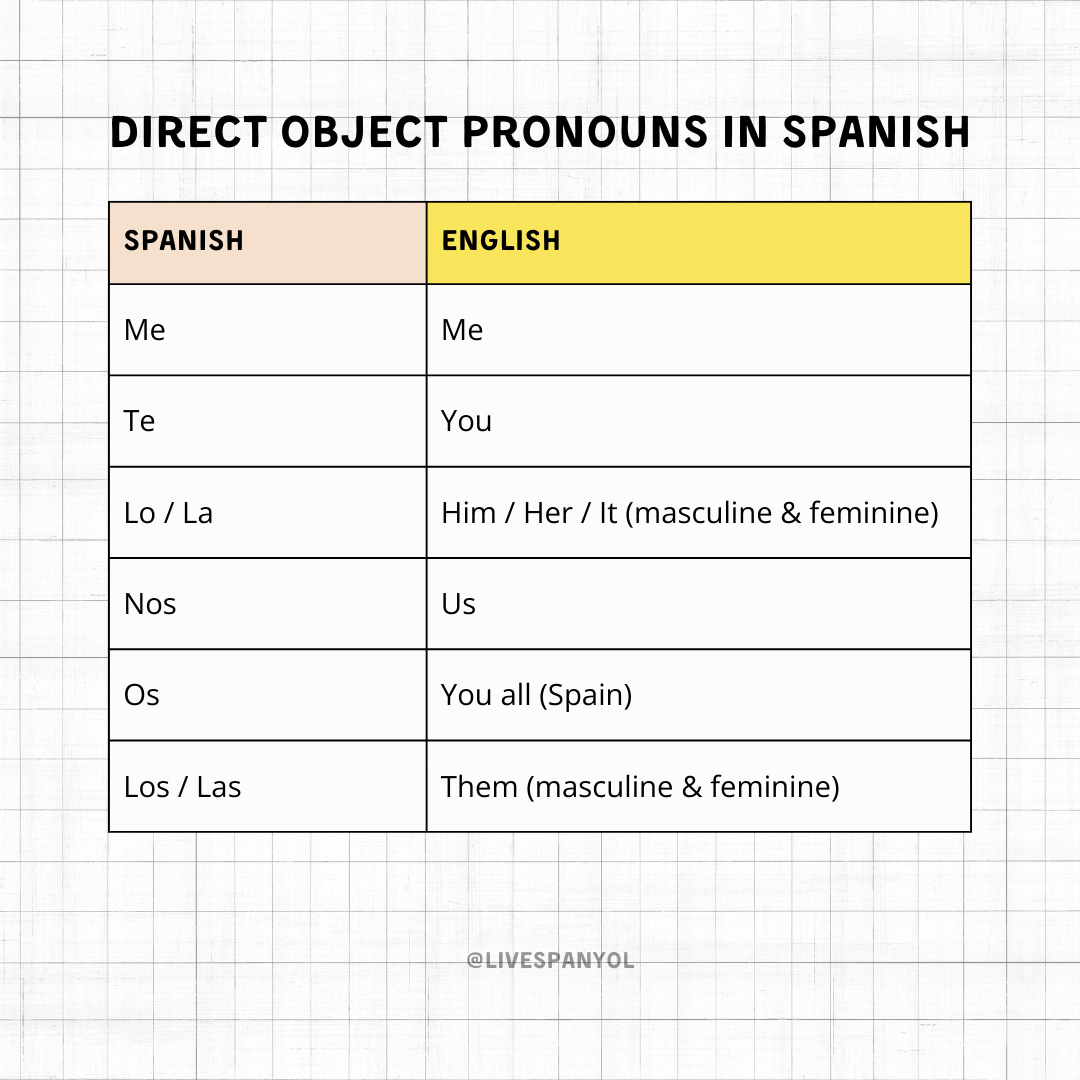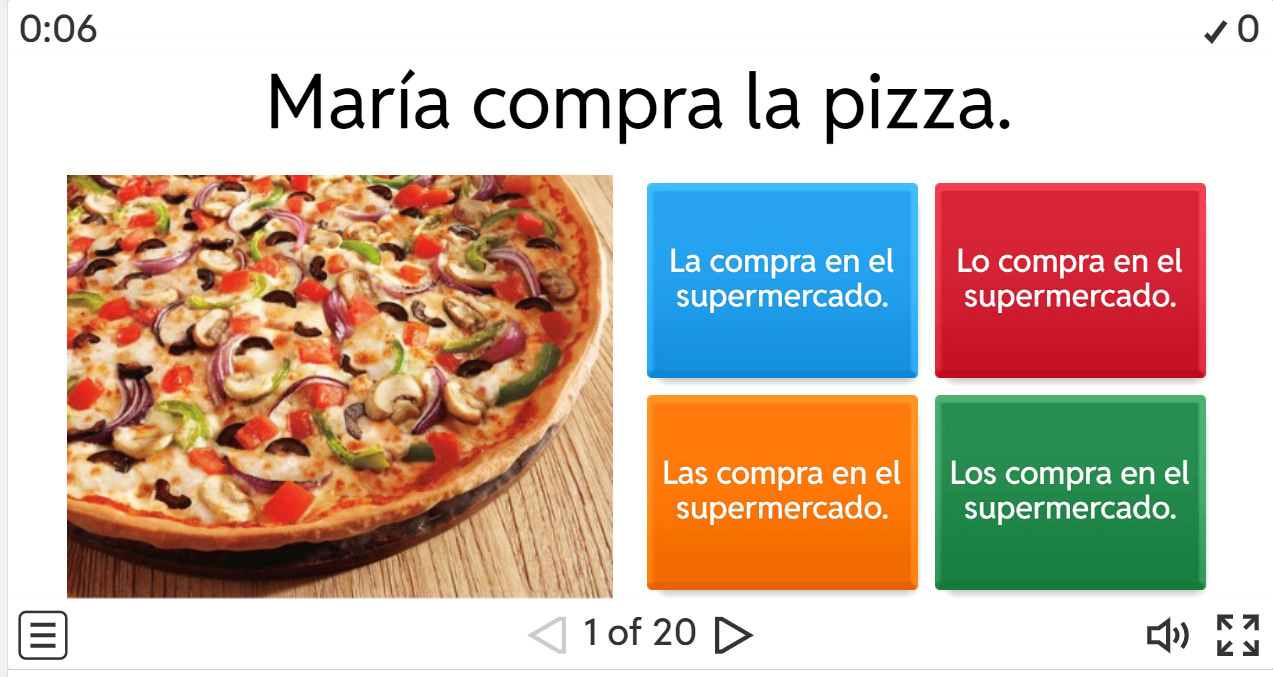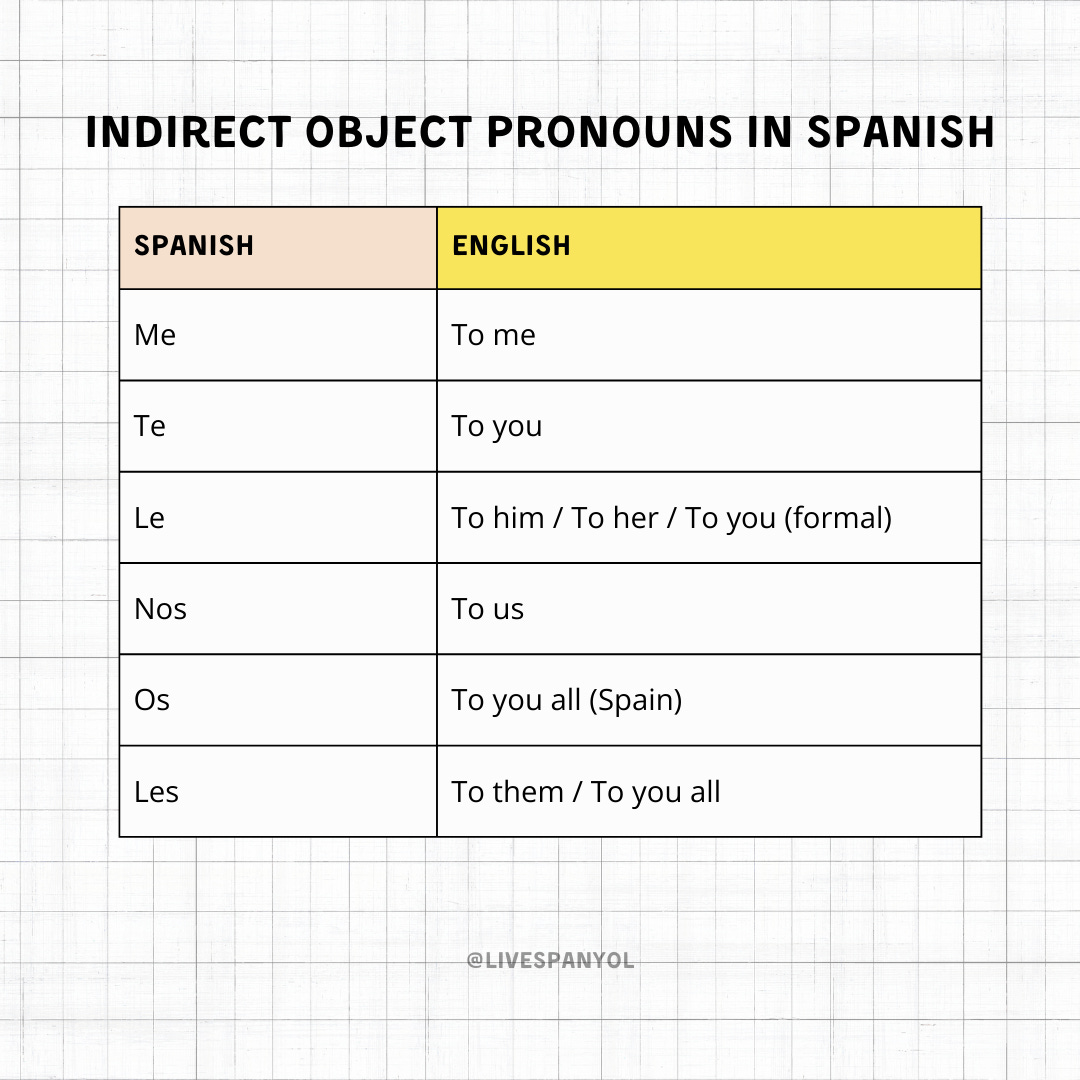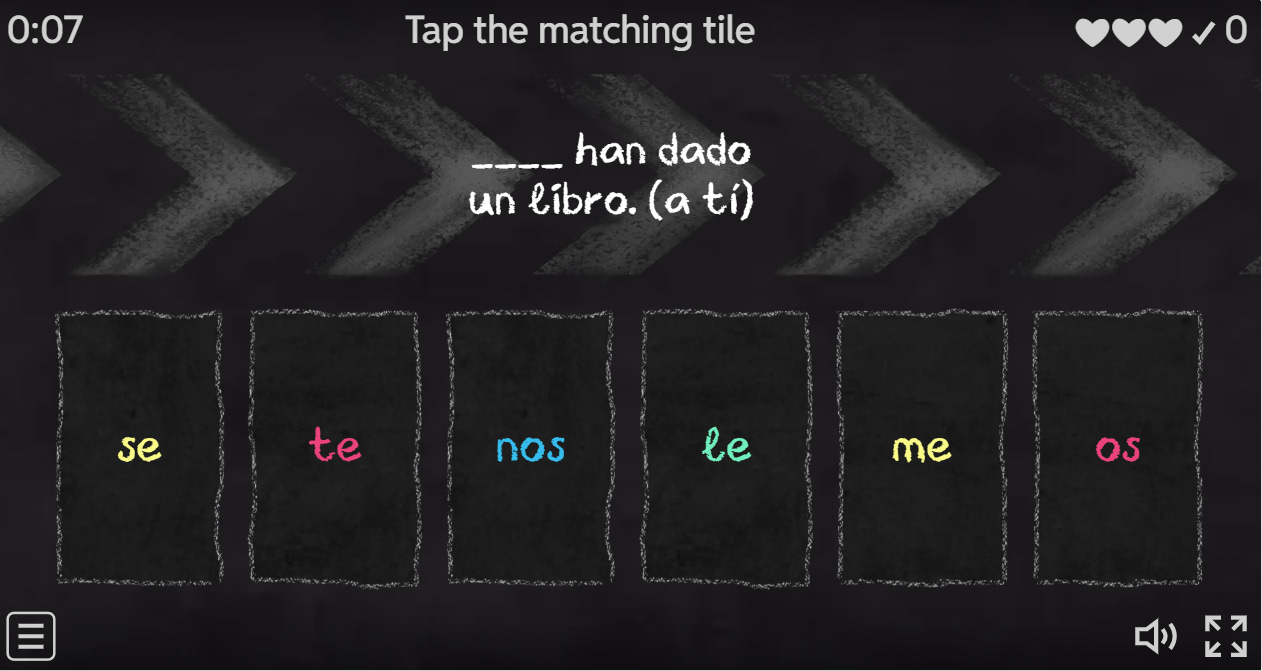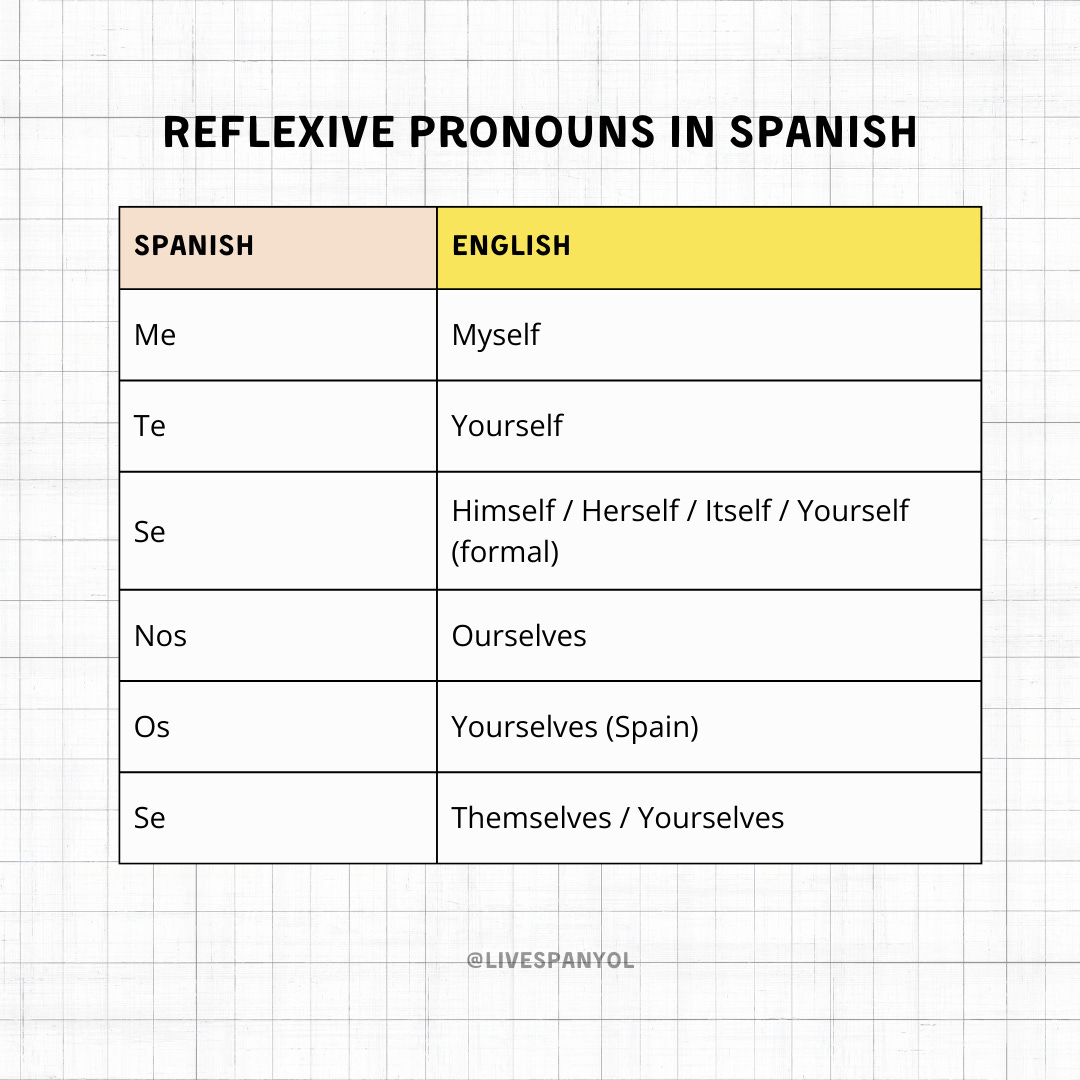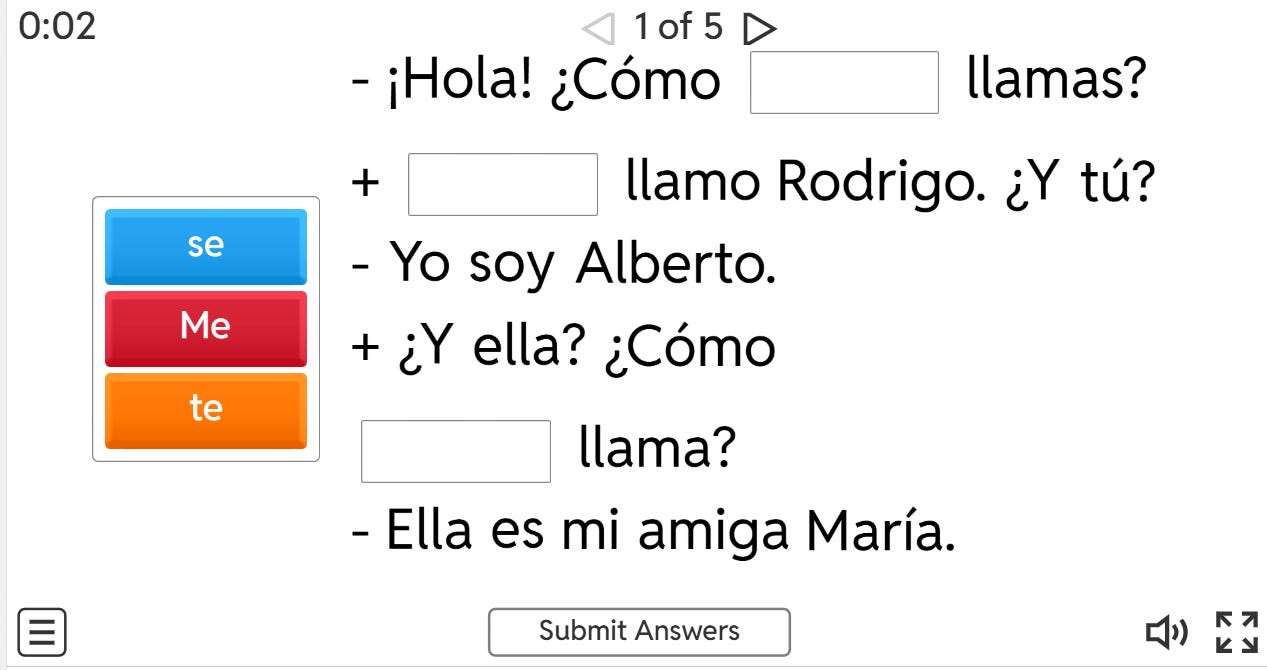Personal Pronouns in Spanish
What Are Personal Pronouns in Spanish?
Personal pronouns are essential in any language, and Spanish is no exception. These small but powerful words replace nouns to avoid repetition and make sentences more fluid. Learning Spanish pronouns is crucial for mastering conversation, writing, and comprehension.
Subject Pronouns in Spanish
Subject pronouns ("pronombres personales de sujeto") replace the subject of a sentence. Here’s a list:
Examples:
Yo estudio español. (I study Spanish.)
Ella es mi amiga. (She is my friend.)
Ustedes son muy amables. (You all are very kind.)
Match the Subject pronouns
Click here to practice
Direct Object Pronouns in Spanish
Direct object pronouns replace the noun that directly receives the action of the verb.
Examples:
¿Dónde está mi libro? Lo tengo en mi mochila. (Where is my book? I have it in my backpack.)
Te veo mañana. (I see you tomorrow.)
Choose the correct direct object pronoun for the sentence
Click here to practice
Indirect Object Pronouns in Spanish
Indirect object pronouns indicate to whom or for whom an action is performed.
Examples:
Mi madre me compró un regalo. (My mother bought me a gift.)
Le dije la verdad. (I told him/her the truth.)
Choose the correct indirect object pronoun for the sentence
Click here to practice
Reflexive Pronouns in Spanish
Reflexive pronouns indicate that the subject and object of the sentence are the same.
Examples:
Me levanto temprano. (I get up early.)
Ellos se preparan para el examen. (They prepare themselves for the exam.)
Complete the dialogue with the reflexive verbs in Spanish
Click here to practice
🚀 Want to Learn More?
📅 Book a 1-on-1 Spanish Lesson with me! 👉 Click here to schedule!
🎥 Subscribe to My YouTube Channel for more fun lessons! 👉 Subscribe Now!


